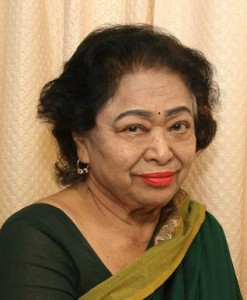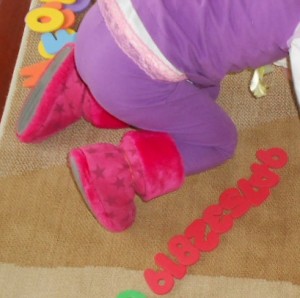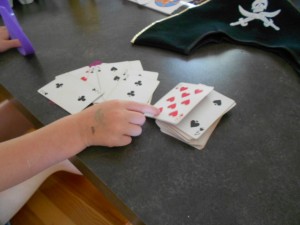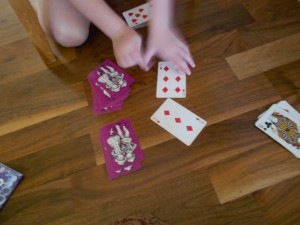One of the favorite Christmas decorations at our house is a nutcracker matryoshka or nesting toy. These 5 wooden dolls help little ones with fun, learning, and kindergarten readiness. Toys like this help kids with the math skills of sequencing and sizes. (When Little Sister is playing with them, we put the smallest one on top of the fridge. Small pieces may not be safe for young children.)
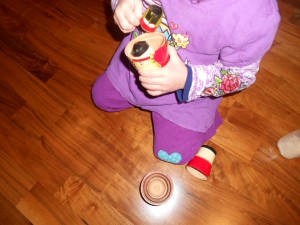 Sizes are all about relationships. A toddler’s shoe may be small compared with an adult’s shoe, but it is big compared with a doll’s shoe. When the nutcracker is opened up, then there is a big nutcracker and a small one, but that small one is bigger than the one inside it. The difference in size is quite obvious but it is a real challenge when the dolls are taken apart to get the tops and bottoms matched together. Adult hands are sometimes needed for that part, but fairly young toddlers get the idea that little dolls will fit inside bigger ones. *A bar of soap rubbed on the edges of the wood make the pieces easier to slide together and apart.*
Sizes are all about relationships. A toddler’s shoe may be small compared with an adult’s shoe, but it is big compared with a doll’s shoe. When the nutcracker is opened up, then there is a big nutcracker and a small one, but that small one is bigger than the one inside it. The difference in size is quite obvious but it is a real challenge when the dolls are taken apart to get the tops and bottoms matched together. Adult hands are sometimes needed for that part, but fairly young toddlers get the idea that little dolls will fit inside bigger ones. *A bar of soap rubbed on the edges of the wood make the pieces easier to slide together and apart.*
Because this is a difficult concept, lots of play with differently sized objects is needed. Kids need to repeat their exploration many times as the brain makes the connections to figure out how objects can be sequenced by size. Babies love to put things inside other things, take them out, and put them in again. Sometimes, taking things out is not as easy as putting them in, like keys in a water bottle! Older preschoolers like to discover just how tight the fit can be! Confession time: have you ever tried this too?
Kids might also enjoy playing with pots and pans, plastic bowls, cups, and other everyday items as they explore and discover size relationships. What other things can you suggest for this idea?

